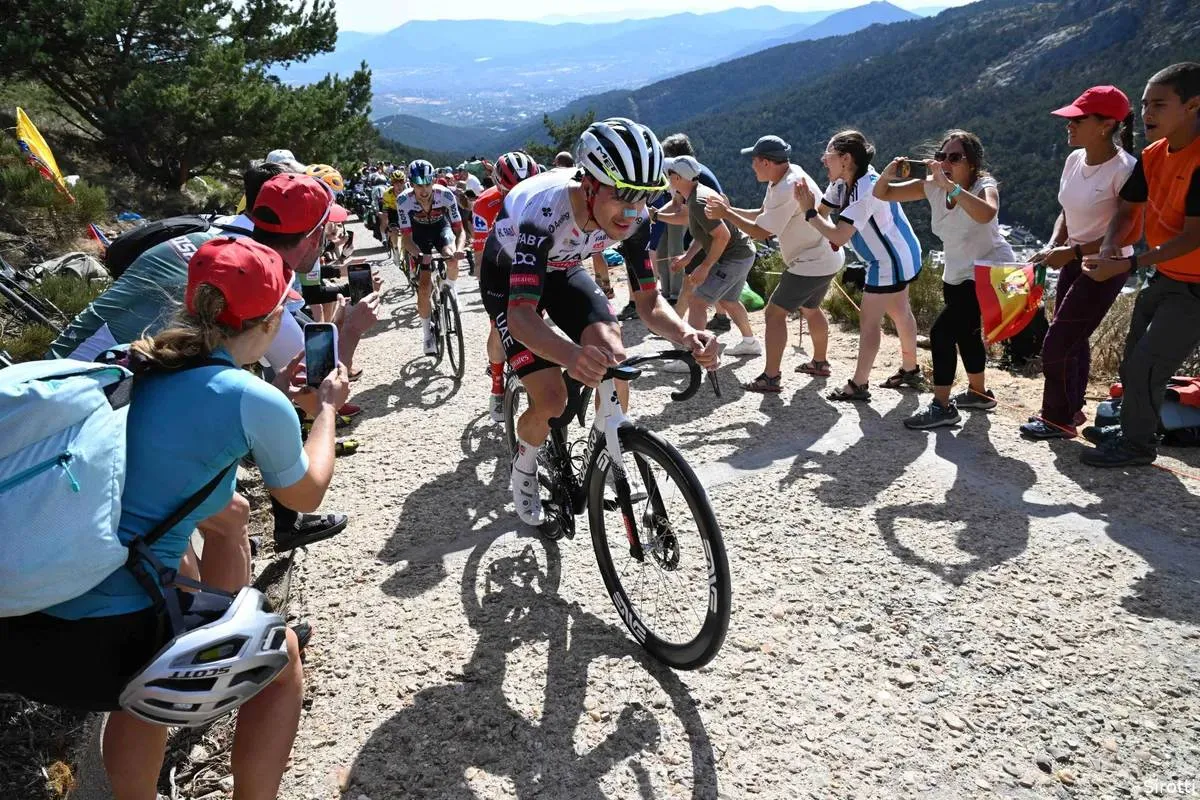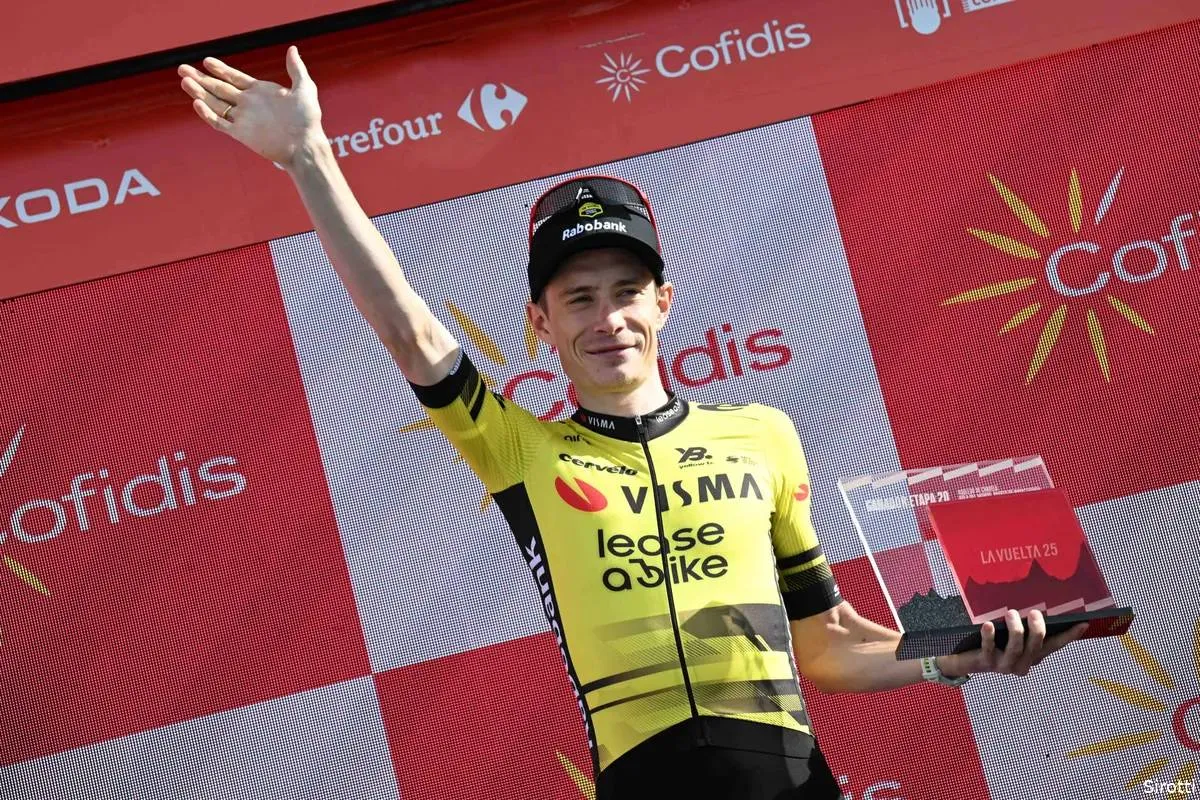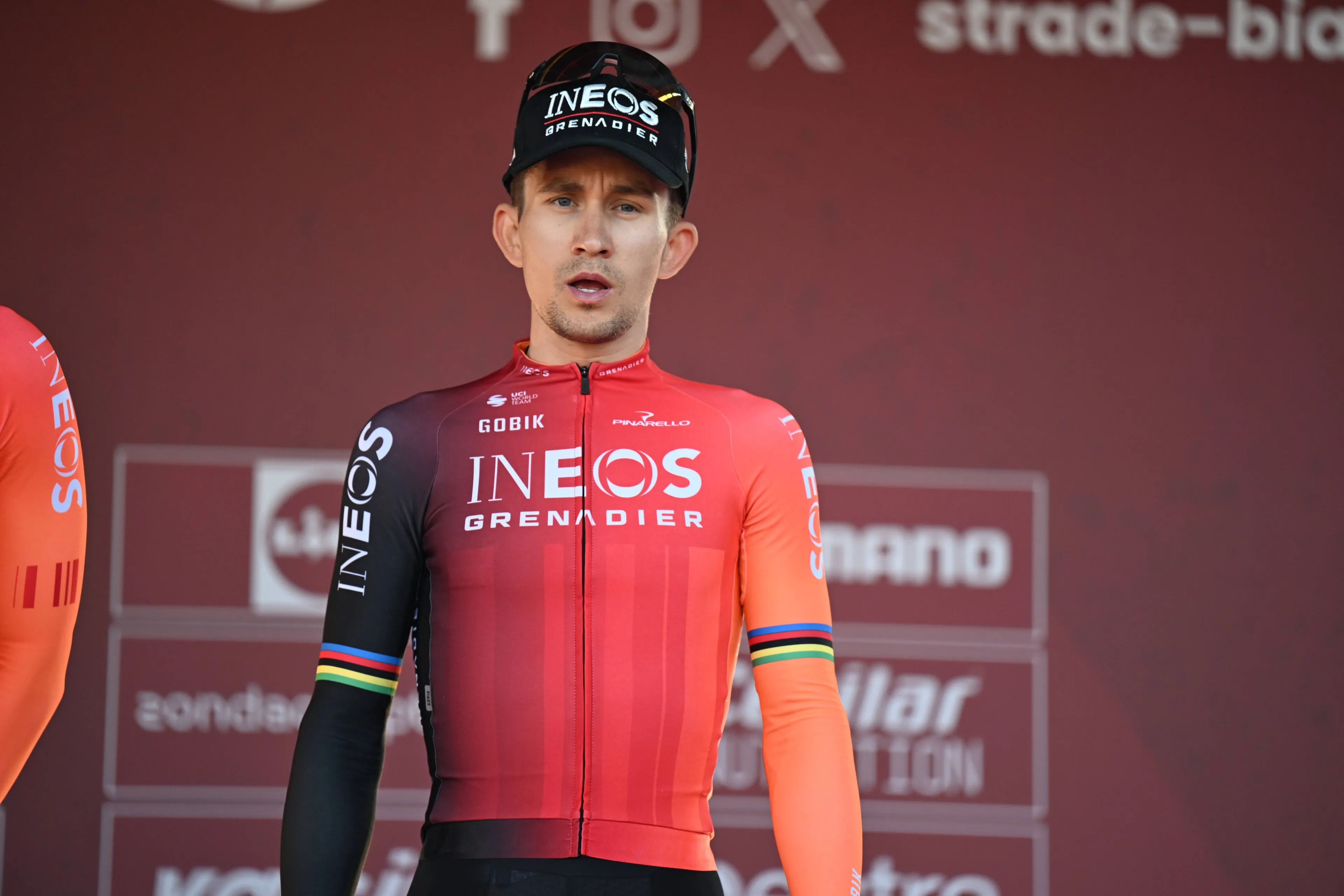Zonneveld sounds the alarm in Vuelta storm around Israel: “Do you think UAE even blinks at Pogacar’s salary?”
CyclingWednesday, 17 September 2025 at 08:08
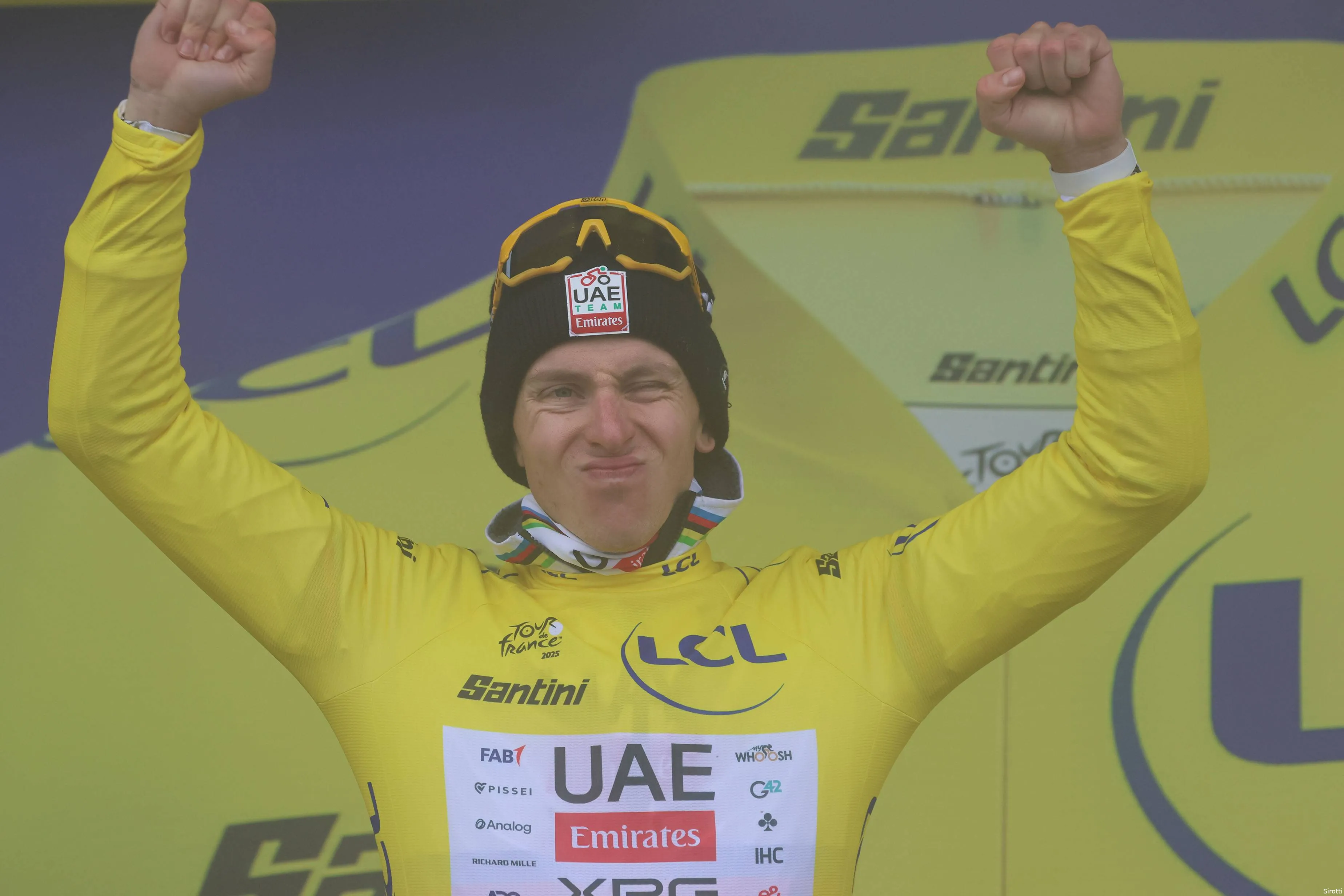
Thijs Zonneveld, in the podcast In De Waaier, looked for concrete solutions to a problem that could become bigger than ever in cycling. Now that the Vuelta a España has been overshadowed by political protests, the fear—already voiced by Michal Kwiatkowski—is that this will happen more often in the future. Zonneveld points to Israel, but to other cases too.
ADVERTISEMENT
“It’s important that cycling as a whole, including the organizers, the UCI, and all the teams, starts thinking about how to deal with this,” he began. “You can keep pretending that sport and politics should remain separate, but that’s simply not the case. Especially when you look at the kinds of sponsors entering cycling.”
Those sponsors often have a lot of money, but also a questionable image. “Cycling is used far more than other sports to whitewash sponsors’ reputations,” Zonneveld said, referring to the term sportswashing. “We need to have a serious discussion about that in cycling, instead of burying our heads in the sand about where the money comes from.”
ADVERTISEMENT
Continue reading below the photo
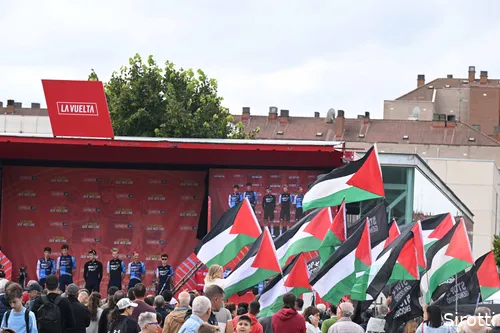
Cycling desperately needs “dirty” money, Zonneveld knows
ADVERTISEMENT
The problem is: cycling is a sponsor-driven sport, and teams rely on sponsors to cover all costs. “Dodgy” sponsors often bring in a lot of money, which directly impacts the quality of a cycling team. “The big difference with other sports is that cycling itself doesn’t generate money. There are many teams just hoping they’ll still exist next year,” Zonneveld explained.
“That economically unstable climate means that anyone who puts even a bag of money on the table is immediately taken seriously. There’s hardly any choice, that’s incredibly tough. The sport is very vulnerable to sportswashing.” And so the chance that people will protest against those big sponsors with “dirty” money is higher. “You can expect that this will happen, and that it will keep happening more often.”
Continue reading below the photo

“UCI and ASO don’t care about economic stability”
ADVERTISEMENT
As Zonneveld stressed, Israel isn’t the only sponsor currently under heavy criticism. “UAE, Bahrain, the World Championships in Rwanda,” the Dutchman listed. “There should be a human rights clause in sport, something like FIFA did years ago around the World Cup in Qatar. And then they handed the World Cup to Saudi Arabia… that makes you look completely ridiculous.”
“The same goes for cycling,” he continued. “Soon we’re heading to Rwanda, where an opposition leader was arrested without any legal grounds and thrown in prison. That’s happening right now. And in the neighboring country, there’s a civil war being sponsored by Rwanda. And then we go there and pretend we’re just going to race. I find that incredibly naïve.”
Continue reading below the photo
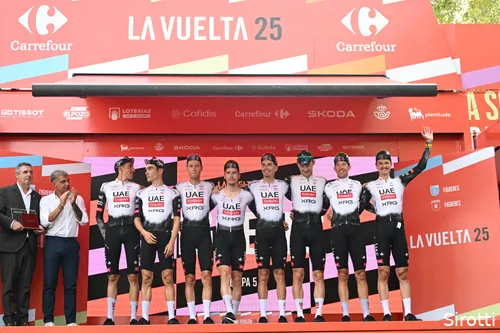
Zonneveld sees UAE as a “big sports team”
ADVERTISEMENT
“There’s just very little money in cycling, and do you think UAE even blinks at Pogacar’s salary?” Zonneveld asked. “He wins so many races, with UAE written big across his chest. When people talk about UAE, it’s no longer about human rights. No, it’s simply seen as a very successful sports team. That’s what sportswashing does.”
“That’s a very tricky discussion, but cycling can’t keep saying it doesn’t care.” And what’s the solution? “Making cycling more economically stable,” said Zonneveld. “That way, a team doesn’t have to blindly accept every bag of money. But the UCI and ASO, as the two biggest players, don’t care about economic stability. So they’re the ones you’ll have to convince.”
Read also
IDL-productions
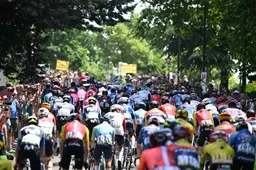
Vacancy: Growth Editor IDL Procycling - (native) English
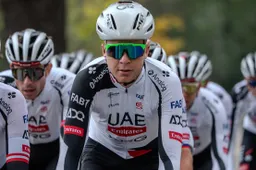
Gravel world champion Florian Vermeersch wants to take next step in the Classics — with and without Tadej Pogacar
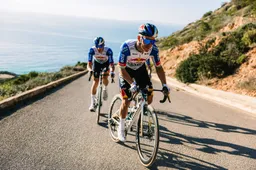
Tour of Valencia 2026 | Remco Evenepoel continues the hunt, but that is certainly not the only exciting thing
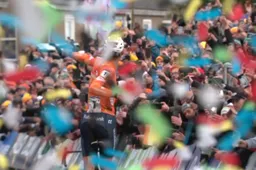
Roodhooft on the Van der Poel formula that helps Mathieu — and anyone who wants to follow — win at Alpecin-Premier Tech
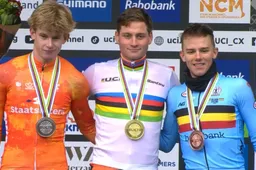
Thibau Nys: “I don’t think World Championship was among Mathieu van der Poel’s best 10 days this winter”
Latest Cycling News

Vacancy: Growth Editor IDL Procycling - (native) English

Former pro cyclist, who became an OnlyFans model after being sacked by EF Education-EasyPost, arrested in Italy
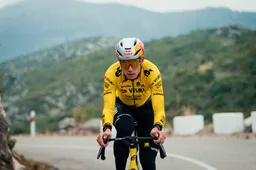
Van Aert heads to altitude camp with Visma | Lease a Bike, despite still-limiting ankle
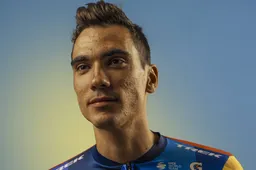
The competition has been warned: Lidl-Trek’s new leaders Gee and Ayuso are already climbing like the best in training
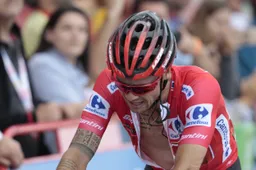
Former rider (41) attacked on the streets of Barcelona: “The biggest fright of my life”
Popular Cycling News

Norwegian triathlete stirs things up again as UAE Emirates-XRG Head of Performance responds: “Bizarre”

Thomas and Rowe question Visma and Vingegaard decision: “What’s Jonas thinking?”

Former rider (41) attacked on the streets of Barcelona: “The biggest fright of my life”

With support from Pieterse, Casasola and more, Cameron Mason explains why he 'froze' again at World Championship
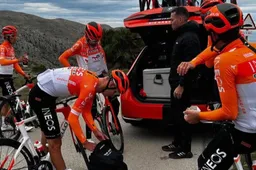
Unibet Rose Rockets coach follows brother and joins INEOS Grenadiers
Latest Comments
- Nice!Bea22-01-2026
- Those events are mental rest for him. Fun, without expectations. *Sagan lost his abilities because he gained weight and got lazy. Pogi will likely retire before that has a chance at happening.Veganpotter14-12-2025
- Ah, the consequences of riding for Israel.Veganpotter11-12-2025
- Pidcock could follow everyone but Pogi while finishing 3rd. No second place rider this season😃Veganpotter16-11-2025
- Now the Palestinian protestors can stop their whining. Trump came to the rescue. So they can now STFU and go back to waving the rainbow flags.raufus15-10-2025
- Cracked the code lol. If it was that easy to 'crack the code' jonny Vegas would be charging up the Kwaremont giving Pog a dose of his medicine. Evenepoel can't match pog on a climb and neither can mvdp. Anything with a half difficult climb and Pog smashes the field. Even on flat(ish)parcours like Roubaix it came down to a mistake and crash by pog to definitively crown mvdp. MSR is the only one that Pog probably won't win.kevpt10-10-2025
- We've seen this movie before. I think Pogacar is doping.DeadBlow10-10-2025
- 👍Bea08-10-2025
- 👌🏻Bea08-10-2025
- What the data doesn't show is how much of an effect drafting had for evenepoel. Pogacar went with del toro at 100km whilst Evenepoel was still in the bunch. Despite the bike changes he still had a lot of assistance getting back to the bunch. Pogacar then rode 60km solo whilst evenepoel rode with Healy/Skjelmose until going solo in thd last 10-15km. Thats ~20% less power / energy requirements for 45-50km. Apples and oranges...kevpt30-09-2025
Loading
